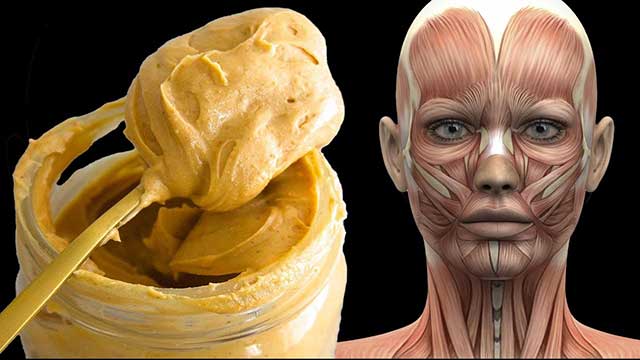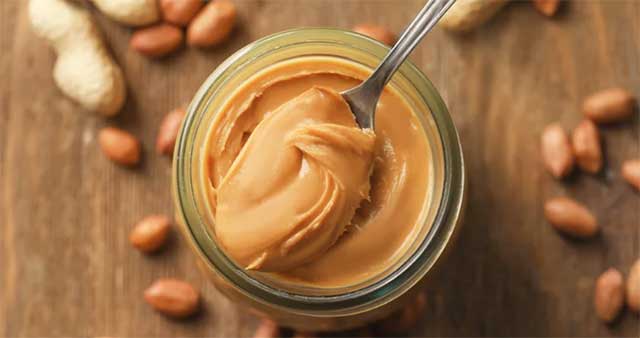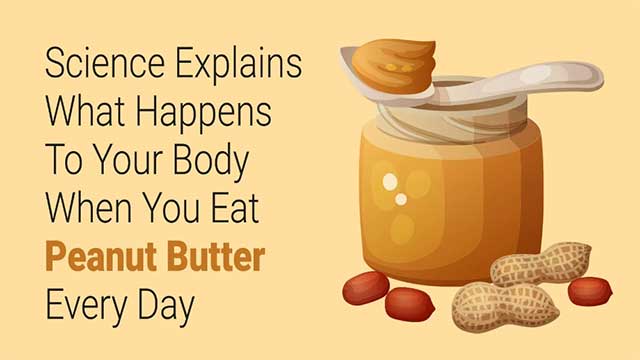There’s something irresistibly comforting about peanut butter. Whether it’s the creamy or crunchy variety, this beloved spread enhances both sweet and savory delights, making it a permanent fixture in many kitchens. Astonishingly, nearly 300 million Americans indulged in peanut butter in 2020, cementing its status as a popular favorite.
Peanut butter boasts impressive culinary flexibility. It’s equally delightful in oatmeal and smoothies as in savory salads and soups, as highlighted by Epicurious in their extensive list of 33 diverse peanut butter recipes. Nutritionally, it’s a powerhouse, offering a dense source of calories, proteins, fats, fibers, vitamins, and minerals, according to WebMD. It’s an effective means of bolstering your nutrient intake.
For many, peanut butter is a dietary staple, and you might be curious about its impact on your body, especially with frequent consumption. Health Digest was intrigued too, and embarked on a comprehensive exploration into the effects of daily peanut butter intake.
Daily Consumption of Peanut Butter Boosts Nutrient Levels
Peanut butter’s primary ingredient is peanuts, processed into either a smooth or chunky paste. This means that with each serving, you’re ingesting a significant portion of the nut’s nutritional benefits. One key aspect is its rich vitamin and mineral profile. WebMD notes that peanut butter is an excellent source of multiple nutrients vital for optimal body functioning and health.
Included in these nutrients are vitamin E, essential for blood health and protection against free radicals, as per WebMD. Niacin (vitamin B3), also present in peanut butter, is crucial for maintaining healthy digestive and nervous systems, according to the Mayo Clinic. Let’s not overlook magnesium, vital for muscle and nerve functions and the immune system, and manganese, which aids in processing proteins and carbohydrates.
Peanut butter also contains vitamin B6, which influences mood, appetite, and sleep, as explained by WebMD. Additionally, it’s a rich source of zinc, necessary for immunity, protein synthesis, and DNA formation, as stated by Medical News Today.

Daily Peanut Butter Intake Aids in Eye Health
The role of diet in eye health is often underestimated. A healthy diet is key in preventing eye disorders, as suggested by the Royal National Institute of Blind People. Consuming peanut butter regularly can be beneficial for your eyesight.
This benefit largely comes from peanut butter’s vitamin E content, crucial for eye health and especially in preventing age-related macular degeneration, as MedicineNet reports. A study cited by the site found that vitamin E significantly reduces the risk of macular degeneration, a finding that will delight peanut butter enthusiasts. Additionally, like peanut butter, hazelnuts are a good source of vitamin E, as noted by WebMD.
Regular Peanut Butter Consumption Supports Muscle Maintenance
For those aiming to build or maintain muscle mass, incorporating peanut butter into your daily diet could be advantageous. Peanut butter, a calorie-dense food, provides about 200 calories and 7 grams of protein per two tablespoons, according to Medical News Today. Both calories and protein are essential for muscle development and repair, making this spread a favorite among bodybuilders.
The healthy fats in peanut butter also play a crucial role in muscle health. The combination of protein and fats like monounsaturated and polyunsaturated fats in peanut butter helps slow digestion, preventing the body from using muscle mass for energy, as reported by Muscle and Fitness.

Regular Peanut Butter Consumption Benefits Heart Health
Heart disease is a leading cause of death in America, with one in four deaths attributed to it, as per the Centers for Disease Control and Prevention. Regular peanut butter consumption can be beneficial for heart health.
This benefit stems from the fat composition of peanut butter. It contains saturated, monounsaturated, and polyunsaturated fats, but it’s the latter two that are particularly beneficial for the heart. These fats help lower blood pressure and reduce plaque build-up in arteries, as indicated by Medline Plus. The ratio of these healthier fats in peanut butter is comparable to that in olive oil, known for its heart-healthy properties, as per the Harvard Heart Letter. Studies have shown that individuals who consume peanut butter and nuts are less likely to develop heart disease.
Peanut Butter Contributes to Brain Health
Diet significantly impacts brain health and function. Providing the brain with nutritious foods supplies it with essential vitamins, minerals, and antioxidants for optimal functioning, according to the Harvard Health Blog.
When you consume peanut butter, you’re feeding your brain with nutrients it needs. One of the key components is vitamin E, a potent antioxidant protecting nerve cells, as highlighted by Martha Clare Morris of Rush University. Regular consumption of vitamin E-rich foods like peanut butter could be a line of defense against Alzheimer’s disease.
Peanut Butter Aids in Managing Cholesterol Levels
Despite its high fat content, eating peanut butter daily can actually improve your cholesterol levels.
Cholesterol comes in two types: HDL, or “good” cholesterol, and LDL, or “bad” cholesterol, as explained by Healthline. HDL helps to remove excess cholesterol from the body, while LDL can accumulate in arteries. While saturated fats raise LDL levels, monounsaturated and polyunsaturated fats, which are more abundant in peanut butter, help lower LDL and clear bad cholesterol from the body, as Medical News Today reports. Thus, regular consumption of peanut butter is beneficial in keeping LDL levels in check, reducing the risk of heart attacks and strokes, according to the Mayo Clinic.
